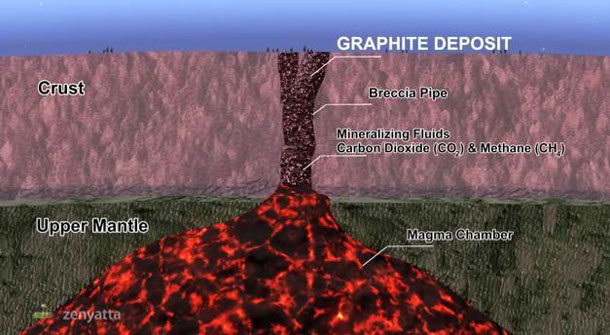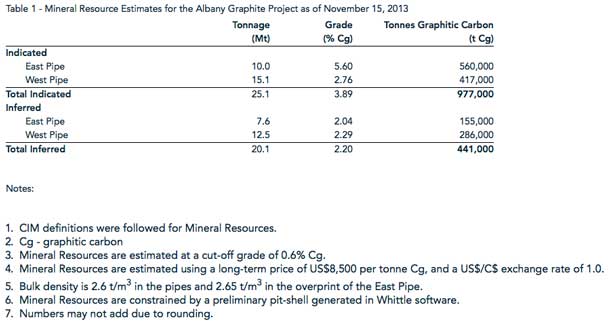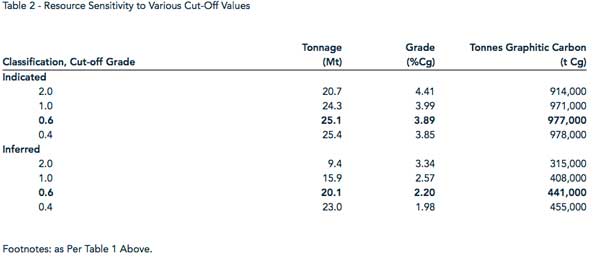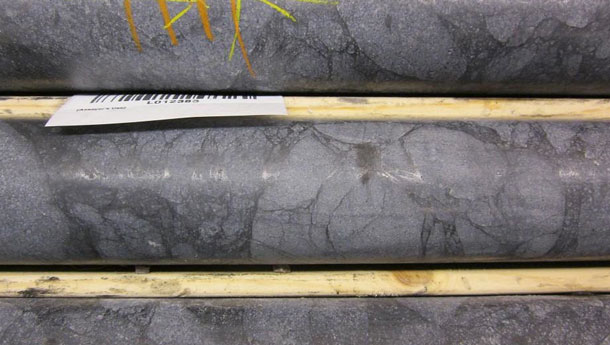
Zenyatta Ventures Continues Moving forward on Albany Project
THUNDER BAY – Mining – Zenyatta Ventures Ltd. has announced results of its initial National Instrument (“NI”) 43-101 compliant resource estimate prepared by Roscoe Postle Associates Inc. (“RPA”) on the Company’s 100 percent owned Albany graphite deposit located in northeastern Ontario, Canada.
RPA estimates Indicated Mineral Resources delineated to date total 25.1 million tonnes (“Mt”) at an average grade of 3.89% graphitic carbon (“Cg”), containing 977,000 tonnes of Cg. In addition, Inferred Mineral Resources delineated to date are estimated to total 20.1 million tonnes at an average grade of 2.20% Cg, containing 441,000 tonnes of Cg. A 3D geological deposit model showing the preliminary pit shell, West and East Pipes can be found at the following link Graphite Project on the Company’s website.


Aubrey Eveleigh, President and CEO stated, “We are extremely pleased with initial results from the independent work completed by RPA displaying a very robust graphite deposit. The Mineral Resource estimate shows a significant amount of graphitic carbon totaling 977,000 tonnes Indicated and an additional amount of 441,000 tonnes Inferred. It’s significant to note that the graphite mineralization extends below the preliminary pit shell and is also open at depth but not included in these Mineral Resource estimates. Zenyatta will continue with market studies and now engage an independent consultant to complete a Preliminary Economic Assessment (“PEA”) by the second quarter of 2014.”
Mineral Resources are contained within two vertical pipes spaced approximately 250 m apart. The East Pipe is approximately 300 m long in the NW-SE direction by 50 m wide by 600 m deep, where it remains open. An overprint of lower grade mineralization occurs around the East Pipe for a collective width of 150 m in the NE-SW direction. The West Pipe is approximately 300 m long in the NE-SW direction by 175 m wide by 500 m deep, where it also remains open. Both pipes are cut by 10 m to 60 m thick barren sills located approximately 200 m to 300 m below surface.















